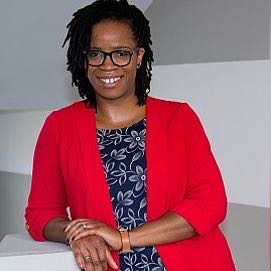Employability remains a contested topic in the sector, but employability discussions often simply focus on how to develop the right mix of knowledge, skills, capabilities and attributes expected of students entering today’s labour market.
Universities place strategic focus on engaging students in activities that will develop and enhance their employability and enable them to acquire the right mix of skills and attributes. But what is the right mix?
Employers hold the cards
We need to reframe this debate and recognise the power relations, the dominance of key stakeholders and the competing logics that play out in the graduate labour market. Let’s be honest about this – to ourselves and to our students: employers hold the cards here. As Raymond Doe writes: employers determine “the level to which graduate students are perceived as possessing attitudes and attributes that enable them to be prepared for success in the workforce”.
In professional services, we have seen increased use of automated telephone interviewing and online psychometric testing to filter out initial prospective graduate trainees early in the process. Students worry that they’re not very good at psychometric tests and coach themselves to beat the algorithms. They learn what the right answer is, because recruitment is about giving the desired perception of themselves to the employer. The process of selecting these prospective employees is further supported by a non-rational process that uses gut feelings and unconscious bias in decision-making.
Acknowledging bias
These recruitment and selection methods are also used for internships and placements, which act as a company pipeline. The 2013 High Fliers Report notes that 30 percent of the graduate vacancies in accounting and professional services are taken up by students who have already worked for that company on an internship or placement.
The more recent 2018 High Fliers Report explains that “in today’s competitive graduate recruitment market, work experience schemes have become an integral part of recruiting new graduates […] recruiters are able to offer students a graduate position […] ahead of employers who recruit graduates during their final year of study. Many recruiters also consider that hiring candidates who have proven their abilities during a placement to be a more reliable way of employing graduates.”
But research has shown that we often recruit people who remind us of our younger self, or people who resemble us. People are people, it’s just how we are – most of us recognise ourselves in this practice. Some companies are working hard to address the imbalance in gender and diversity that these practices have led to – but there is still much to do. However, where is this acknowledged in the employability debate and in conversations with our students about accessing graduate jobs?
Complex barriers to access
In my own institution, none of the second-year black students, who represent 10 percent of the student cohort and are all high achieving students who secured at least AAA at A level to get onto their accounting and finance course, have achieved a work placement – not one. In a recent focus group conducted with half of them, they all expressed a strong desire to do a placement and were frustrated that they did not have one. However, they all conceded that they did not understand the importance of attending networking and promotional events and building network capital during their first year of study – until it was too late. We need an evidence-based, dialogue-based approach to educating students very early on about the importance of such activities.
I am currently undertaking research with students for their direct benefit, to further explore the barriers to internships and placements, and to identify optimal interventions to provide personalised support structures. With the support of Q-Step and Laidlaw, I have been conducting several funded work-readiness projects in partnership with two fantastic but very different undergraduate scholars. They both have great insight and personal experiences that have helped shape the projects – working with students for students is such a joy!
Our initial findings have brought home some stark revelations. Barriers to accessing internships and placements are complex and nuanced. The barriers are common to some demographic groups, others intersect within ethnic groups and/or across ethnicity, socio-economic background and gender. Some of the barriers to internships and placements are about the individual student: some students have issues with motivation and self-confidence; others struggle with the work of overcoming barriers related to their identity. Other barriers are structural and disadvantage becomes entrenched: student carers, students with little money, or students with a lack of visible role models to whom they can relate and with whom they can share experiences.
What is clear from our findings so far is that the groups most impacted by barriers to internships and placements feel marginalised, disenfranchised and, unfortunately, not adequately supported.
Things must change.
Tell the truth
We need to engage in conversations and dialogue that are truthful, transparent and evidence-based with students, particularly those who are marginalised, and for whom their university experience only perpetuates their disadvantage. We need to provide personalised support structures for students identified as low on the work-readiness scale. Students need to be empowered to be able to position themselves to make informed choices and take ownership of their work-readiness at a micro-level. All students are experts of their own experience.
For some students, an inherent (and sometimes unchangeable) part of their identity may be perceived as undesirable by many employers: it may be their afro hair, wearing a hijab, a northern accent, a physical disability, their perceived or actual sexual preferences, or their perceived or actual religious beliefs. We need to help students acknowledge and understand these biases very early on in their student journey, in order that they can consider, what, if anything, they are able or prepared to change to conform to what is desired by employers.
Universities can work more effectively with students, from the minute they become our students, to help them understand the identity regulation undertaken by employers in the recruitment and selection of students. We need to support them in the work of negotiating their identity and employer biases, in order to understand what this identity regulation means for them and their future success in the graduate labour market.














Important and great to read. At DMU we’re in the first months of a 3-year OfS funded project addressing recruitment bias among Leicester SMEs. The whole project will involve students and local businesses in dialogue, unwrapping the issues and looking at options working together round a table. We’ve tended to almost never take our students along to B2B business network events (I don’t mean employability events) and instead universities tend to play the role of runner going back and and forth between ‘understanding employer needs’ and ‘making students work ready’. With students in the room, businesses only want to talk to the students directly, and universities’ role is to listen, facilitate and help produce the tools for delivering actual change. Looking forward to sharing this work over time.